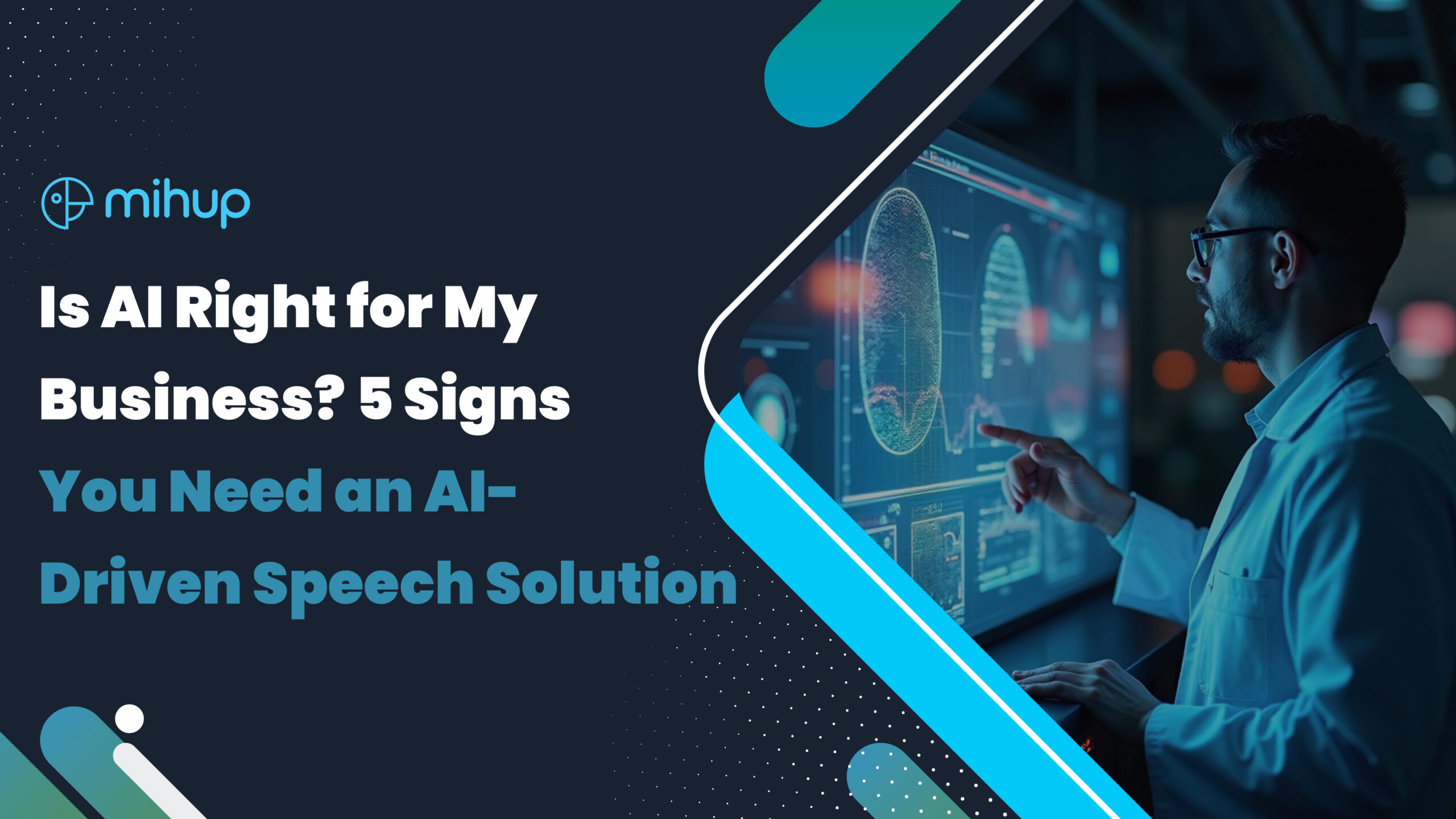Have you ever wondered how businesses know what their customers want? That’s where customer interaction analytics comes in. It’s a powerful way for companies to understand how they talk with their customers. Think of it as collecting information from every time a customer reaches out, whether through email, phone calls, social media, or chat. Companies use smart computer programs, like artificial intelligence (AI), to learn important things about what customers like and need. This helps them make better decisions that make both customers and the company happy.
Enhancing Customer Satisfaction and Operational Efficiency
One of the best things about customer interaction analytics is that it helps find problems that keep coming up. When businesses can spot these problems early, they can fix them quickly and make customers happier. It’s like having a crystal ball that shows what customers might want or need next.
This technology also helps employees do their jobs better. It shows which workers are doing great and who might need extra training. When employees get better at their jobs, customers get better service. Happy customers usually stick around longer and tell their friends about the good service they got. This also stops small problems from turning into big headaches.
In today’s world, where customers have many choices, understanding them through analytics isn’t just nice to have, it’s necessary. It helps businesses build stronger connections with customers and grow steadily.
The Fundamental Components of Customer Interaction Analytics
Let’s break down the main parts that make customer interaction analytics work:
Conversational AI
Think of conversational AI as a smart helper that can talk with customers automatically. It’s like having a friendly robot that can answer questions day or night. For example, when you visit a website and see a chat window pop up, that might be conversational AI ready to help you find what you need. This means customers can get help anytime, even when human workers are sleeping.
Emotion Detection
This technology is like having a friend who’s really good at knowing how you feel. It can tell if a customer is happy, frustrated, or upset by listening to their voice or reading their messages. For instance, if someone sounds angry on the phone, the system alerts the customer service person to be extra understanding. This helps businesses handle difficult situations with more care.
Keyword Spotting
This is like having super-hearing for important words. When customers use words like “refund” or “complaint,” the system notices right away. It’s similar to how your ears perk up when you hear your name in a crowded room. This helps businesses quickly find and fix problems before they get worse.
Machine Learning (ML)
Machine learning is like having a student who gets smarter with every lesson. The more customer conversations it sees, the better it gets at predicting what customers might need. For example, if you often ask about a certain product feature, the system learns to have that information ready for you next time.
Natural Language Processing (NLP) and Sentiment Analysis
This technology helps computers understand human language the way we do. It’s like having a translator who not only knows the words but also understands the feeling behind them. When someone writes about your company on social media, NLP can understand if they’re happy, sad, or frustrated, just like a human would.
Key Benefits of Customer Interaction Analytics
Understanding Customers Better
These tools help businesses learn what their customers really want, like:
- Which way they prefer to get in touch (phone, email, chat)
- When they usually need help
- Which products or services they like best
Making Things Personal
Just like how a good friend remembers what you like, these tools help businesses remember each customer’s preferences and history. This means they can give each person the kind of service that suits them best.
Happier Customers Who Stay Longer
When every conversation with a customer goes well, they start to trust the business more. Happy customers usually stay longer and tell their friends about their good experiences.
Saving Time and Money
By letting computers handle the simple tasks of gathering and understanding information, businesses can save time and money. This lets workers focus on more important jobs that need a human touch.
Making Better Choices
These tools turn lots of customer information into clear suggestions about what to do next. It’s like having a wise advisor who has listened to thousands of customers and knows exactly what needs to be done.
Catching Problems Early
Just like how it’s better to fix a small leak before it becomes a flood, these tools help businesses spot and fix small problems before they become big ones.
Staying Safe and Following Rules
These tools also help businesses:
- Spot any suspicious activity
- Keep customer information safe
- Make sure everyone follows the right procedures
Why Contact Centers Need Interaction Analytics
In today’s competitive landscape, even a single negative interaction can lead to customer attrition. As a result, contact centers must strive for excellence in every customer engagement. Here’s why interaction analytics is essential:
1. Unified Customer Insights
Unified customer insights collect data from a wide range of interaction channels to provide a comprehensive view of the customer journey. This data is consolidated into a single, accessible platform that enables businesses to understand the full context of each customer’s experience.
For example, integrating interaction analytics with chat logs and social media interactions provides valuable insights into customer preferences, pain points, and history. This enables businesses to personalize experiences, anticipate needs, and enhance decision-making processes across departments.
2. Data-Driven Decision Making
By analyzing large volumes of interaction data, businesses can uncover valuable trends and insights that guide decision-making. Tools like Mihup use advanced machine learning and speech analytics to process audio and textual data, identifying patterns in customer queries, sentiments, and behaviors.
For instance, if a business notices an uptick in customer inquiries about a specific product issue, they can use these insights to make informed decisions about product improvements or marketing strategies. The ability to derive actionable insights from data ensures that every decision is grounded in real-time customer feedback, making businesses more agile and responsive to changing market dynamics.
3. Enhanced Agent Performance
Technology like Mihup helps improve agent performance by providing real-time feedback and support during customer interactions. It analyzes live calls and chats to offer recommendations and insights that can guide agents toward resolving issues more efficiently.
For example, if an agent struggles with a complex customer query, Mihup’s AI-driven suggestions can provide relevant information or suggest a more empathetic response based on the customer’s tone and sentiment. This immediate support helps agents handle calls with more confidence, improve resolution times, and deliver a higher quality of service, ultimately leading to better customer experiences and satisfaction.
4. Customer Retention
Proactively addressing customer frustrations is crucial for reducing churn and improving customer retention. Mihup’s emotion detection and sentiment analysis features can pinpoint moments of dissatisfaction during customer interactions, allowing businesses to intervene before the issue escalates.
For example, if a customer exhibits frustration over a recurring problem, Mihup can trigger alerts to notify the agent to address the concern with urgency and empathy. By addressing issues early on and offering timely solutions, businesses can retain valuable customers, foster loyalty, and reduce churn rates.
5. Operational Efficiency
Automating routine tasks is a key aspect of improving operational efficiency in customer service. Mihup can streamline workflows by automating tasks like data entry, routine queries, and follow-up reminders. This automation frees up agents to focus on more complex, value-driven activities.
For instance, automated responses for common inquiries can be handled by Mihup’s AI-powered solutions, while agents can devote more time to resolving unique issues or providing personalized assistance. By reducing manual workloads and optimizing task management, businesses can enhance both productivity and service quality.
By integrating technologies like Mihup into these customer interaction strategies, businesses can drive improvements across all areas, from customer insights to operational efficiency. This combination of AI-driven tools and data analytics ensures businesses remain agile, responsive, and customer-centric in today’s competitive environment.
Important Things to Measure
Here are some key things businesses should keep track of:
- How often they can solve a customer’s problem the first time they ask
- How long it takes to help each customer
- How happy customers say they are after getting help
- How easy customers think it was to get help
- How customers’ feelings about the company change over time
- How many people hang up before getting help
- What people are saying about the company on social media
Making Customer Service Better
Using these tools can completely change how businesses talk with their customers. By understanding how customers feel, what they want, and what they like, companies can:
- Give consistently good service every time
- Build relationships that last a long time
- Stay ahead of other businesses by coming up with new ideas
With the right tools and plans, businesses can use this technology to make customers happier and grow steadily.
Conclusion: Empowering Business Growth Through Customer-Centric Insights
Customer interaction analytics is like having a superpower that helps businesses understand their customers better. By collecting information from all the ways customers communicate and using smart technology like AI, companies can make better decisions that improve customer experiences and make work more efficient.
Features like understanding emotions, analyzing feelings, and machine learning help businesses spot and fix problems quickly, help workers do better, and keep customers happy. By using these tools, businesses can build stronger relationships with customers, keep them longer, and grow successfully in a competitive market.





